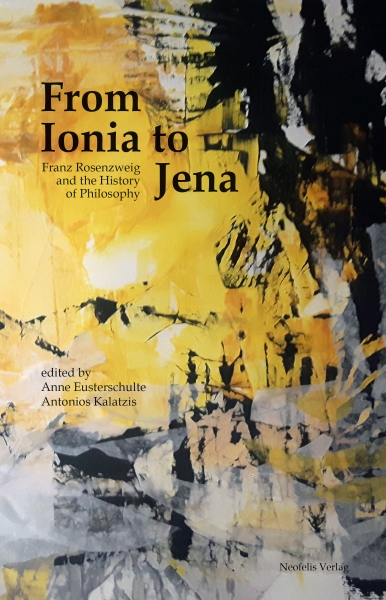From Ionia to Jena
From Ionia to Jena
Franz Rosenzweig and the History of Philosophy
Anne Eusterschulte / Antonios Kalatzis (Hrsg.)
Das Erscheinen verzögert sich auf unbestimmte Zeit.
Softcover, 13,5 x 21 cm, 300 Seiten
Erscheinungsdatum: 31.12.2024
ISBN: 978-3-95808-212-0
Erscheinungsdatum: 31.12.2024
ISBN: 978-3-95808-212-0
26,00 € *
inkl. MwSt.
Auslandsbestellungen zzgl. Versandkosten
Versandkostenfreie Lieferung!
Dieser Artikel erscheint am 31. Dezember 2024
- ISBN: 9783958082120
- Reihe: Promesse – Kritische Studien zu Philosophie, Ästhetik, Geschichte und Religion
- Lieferbar: Bd. 2
Die Reihe Promesse wird herausgegeben von Anne Eusterschulte und Ansgar Martins.


